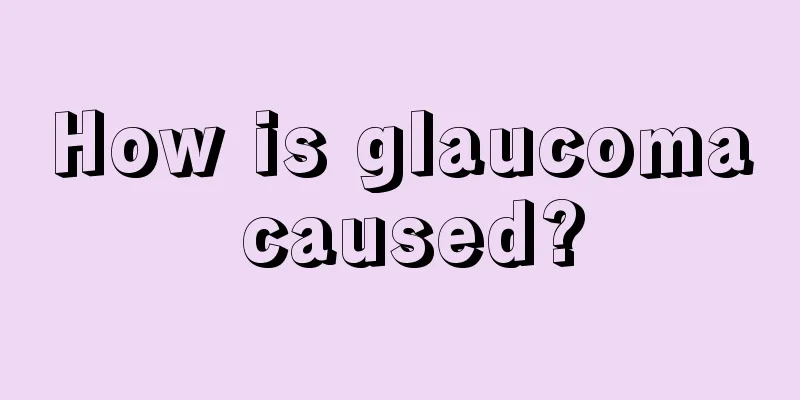How does tongue cancer develop and what are the symptoms?

|
The formation of tongue cancer is closely related to genetics, oral environment, physical health and bad habits. Its main symptoms include tongue ulcers that do not heal, foreign body sensation on the tongue, pain or limited mobility. If you find related symptoms, you should seek medical attention as soon as possible. This article will analyze the causes of tongue cancer in depth and list the early symptoms and suggestions. 1. Causes of tongue cancer 1. Genetic factors If someone in your family has cancer, especially head and neck malignancies, your risk of developing tongue cancer will increase. This may be related to gene mutations in the family or individual genetic susceptibility. 2. Environmental factors (external stimuli) Long-term smoking, drinking or chewing betel nut are high-risk behaviors that induce tongue cancer. Harmful substances in tobacco and alcohol can directly irritate the tongue mucosa, leading to abnormal cell proliferation. Long-term consumption of hot or spicy food may also increase damage to tongue tissue, thereby increasing the risk of cancer. 3. Physiological factors (one’s own health condition) Chronic inflammation of the tongue, leukoplakia or lichen planus, if not treated in time, may deteriorate into tongue cancer. In particular, poor oral hygiene or low immunity can also aggravate the progression of these lesions. 4. Trauma (long-term local irritation) Long-term friction from ill-fitting dentures, sharp teeth or dental restorations may cause repeated trauma to the tongue mucosa, which may induce cancer over time. 5. Viral infection (pathological cause) Human papillomavirus (HPV) infection may be related to the occurrence of tongue cancer, especially HPV types 16 and 18. These high-risk viruses may cause cancerous changes in tongue cells. 2. The main symptoms of tongue cancer 1. Tongue ulcers that do not heal after long-term treatment In the early stages of tongue cancer, abnormal ulcers are often seen on the tongue, which are usually rough in surface, with irregular borders and a tendency to bleed. If there is no improvement after taking medication, you should be highly alert. 2. Pain and foreign body sensation Some patients may feel a foreign body sensation on their tongue or in their mouth, which then gradually develops into tingling or constant pain when eating or talking. This pain may sometimes radiate to the ears or jaws, which is an important warning sign. 3. Limited tongue movement Patients with tongue cancer may experience tongue stiffness or limited movement, which may affect normal swallowing, pronunciation or chewing functions in severe cases. Local swelling and numbness of the tongue are also common manifestations. 4. Tongue lumps A lump or bump with an unusual texture may appear on the tongue, which is noticeably different from the surrounding normal tissue. This lump may increase in size as the cancer develops. 3. Measures to deal with tongue cancer 1. Surgery In the early stage of tongue cancer, tongue tumor resection is often performed, and the prognosis is better for localized tongue cancer. In the advanced stage, partial tongue resection or neck lymph node dissection may be required, and the surgery depends on the size of the tumor and the extent of invasion. 2. Radiation therapy It is suitable for local lesions of tongue cancer. Radiotherapy can be used as the main or auxiliary treatment for patients who are not suitable for surgery or have residual cancer cells after surgery. 3. Chemotherapy Chemotherapy is often used for patients with advanced tongue cancer, especially when the cancer has metastasized. Combining drugs such as cisplatin and fluorouracil may improve treatment outcomes. 4. Diet and lifestyle management Balanced nutrition, quitting smoking and limiting alcohol consumption, and avoiding irritating foods are important measures to prevent the recurrence of tongue cancer. Attention should be paid to oral hygiene and regular checkups should be performed to increase the probability of early detection. Discovering the causes and symptoms of tongue cancer can significantly increase the early screening rate and help with timely intervention. If abnormal tongue ulcers or other symptoms occur, you should consult a dentist or oncologist as soon as possible to get the best treatment opportunity and ensure the effect. |
<<: Is the cure rate of stage t2 prostate cancer high?
>>: What to do with breast fibroids in an 18-year-old girl
Recommend
Conventional treatments for uterine tumors
Uterine tumor is one of the killers of women'...
Signs of death in the late stage of gastric cancer What are the symptoms in the late stage
What are the signs of death from advanced gastric...
Is shortening butter? Are shortening and butter the same?
I believe many people are not very clear about wh...
What are the effects of canned yellow peaches
Canned yellow peaches are actually a kind of cann...
What's wrong with sagging eye bags
Many people have bags under their eyes, and the c...
How to remove tea stains from teacups
We all know that no matter what kind of thermos c...
What are the effects of ginseng seeds
Ginseng seed is the name of a traditional Chinese...
MRI can be used to assist in the examination of prostate cancer
How should prostate cancer be examined? Currently...
What harm will boiling water twice cause to the body
Nowadays, many people attach great importance to ...
Is taking a bath every day good for your skin?
After a hard day's work, taking a comfortable...
What to do if cornea is burned
Many people accidentally burn the inner membrane ...
What are the early signs of gastric cancer? 3 symptoms are warning signs, the first one is most likely to be ignored
It is no exaggeration to say that nearly half of ...
The role of mugwort leaves is very important in Chinese medicine health preservation
In the past, every year during the Dragon Boat Fe...
What does a thigh strain feel like
At present, due to changes in living environment ...
What kind of incense can calm the nerves and help you sleep
Nowadays, many women pay great attention to their...









